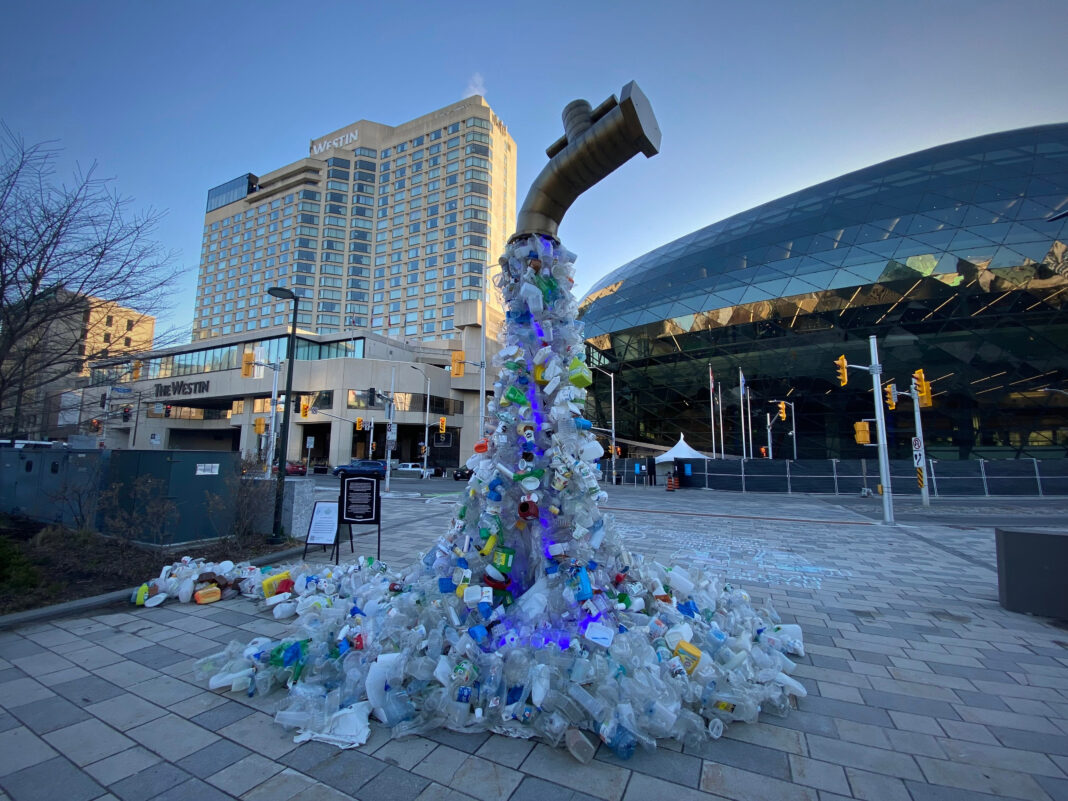Global effort to combat plastic pollution gathers momentum at Ottawa summit
MANITOULIN—The Intergovernmental Negotiating Committee (INC-4) convened recently in Ottawa, marking a crucial step in the ongoing efforts to develop an international treaty addressing plastic pollution, particularly in marine environments. This has climate change activists on Manitoulin playing close attention, as the world’s largest freshwater island in the world makes its home in one of the largest Great Lakes. The session underscores the urgency of collective action to curb plastic pollution worldwide.
In her address, Inger Andersen, Executive Director of the UN Environment Programme, emphasized the need for decisive measures to eliminate problematic and avoidable uses of plastic. She urged delegates to demonstrate energy, commitment, and collaboration in crafting a comprehensive treaty that would effectively combat plastic pollution.
At a stakeholder level, Kim Neale, an Island representative of the World Wildlife Fund (WWF) emphasized the treaty’s potential to advance circular economy goals and facilitate commitments from all stakeholders to reduce plastic usage globally. However, she acknowledged the controversy surrounding the treaty and highlighted the need for careful consideration of its potential impacts, particularly on remote communities like Manitoulin Island.
Ms. Neale emphasized the importance of local implementation and support for alternative solutions to plastic usage, stressing the need for subsidies to mitigate potential increases in living expenses for remote communities. She underscored the importance of addressing food insecurity and energy poverty in these regions as part of a comprehensive approach to combating plastic pollution.
“Here on the Island we are already incurring the cost for recycling,” she said. “While I hope that we see changes at grocery store chains reducing products with excess packaging, we also have to look at how that might affect food costs at the outset. Plastics manufacturers have a lot of power and most less expensive foods are highly packaged. We have to be aware as a community that persons facing food insecurity will be most impacted and it will be important to seek supports and funding to protect the most vulnerable in our communities.”
INC-5, scheduled to take place in Busan, the Republic of Korea, in November 2024, is anticipated to mark the culmination of the negotiation process, culminating in a Diplomatic Conference where Heads of State will sign the agreement.
Chairing the INC, Luis Vayas Valdivieso emphasized the critical role of multilateral cooperation in addressing the global plastic pollution crisis. He called upon delegates to negotiate with accountability and integrity, grounded in scientific evidence and a shared commitment to ending plastic pollution.
The start of INC-4 was preceded by regional consultations and engagements with Observers. Canada also hosted a Partnerships Day and Ministerial Day on the sidelines of the session, underscoring the importance of collaborative action in combating plastic pollution.
Canada’s Minister of Environment and Climate Change, Steven Guilbeault, highlighted the significance of reaching a global agreement on plastic pollution by the end of 2024. He reaffirmed Canada’s commitment to supporting ambitious measures to address plastic pollution at both domestic and international levels.
As negotiations at INC-4 commenced, delegates were tasked with navigating complex issues to reach a consensus on the treaty’s text. With the stakes high and the need for action urgent, INC-4 represents a critical opportunity to advance global efforts to combat plastic pollution and safeguard marine environments for future generations.






